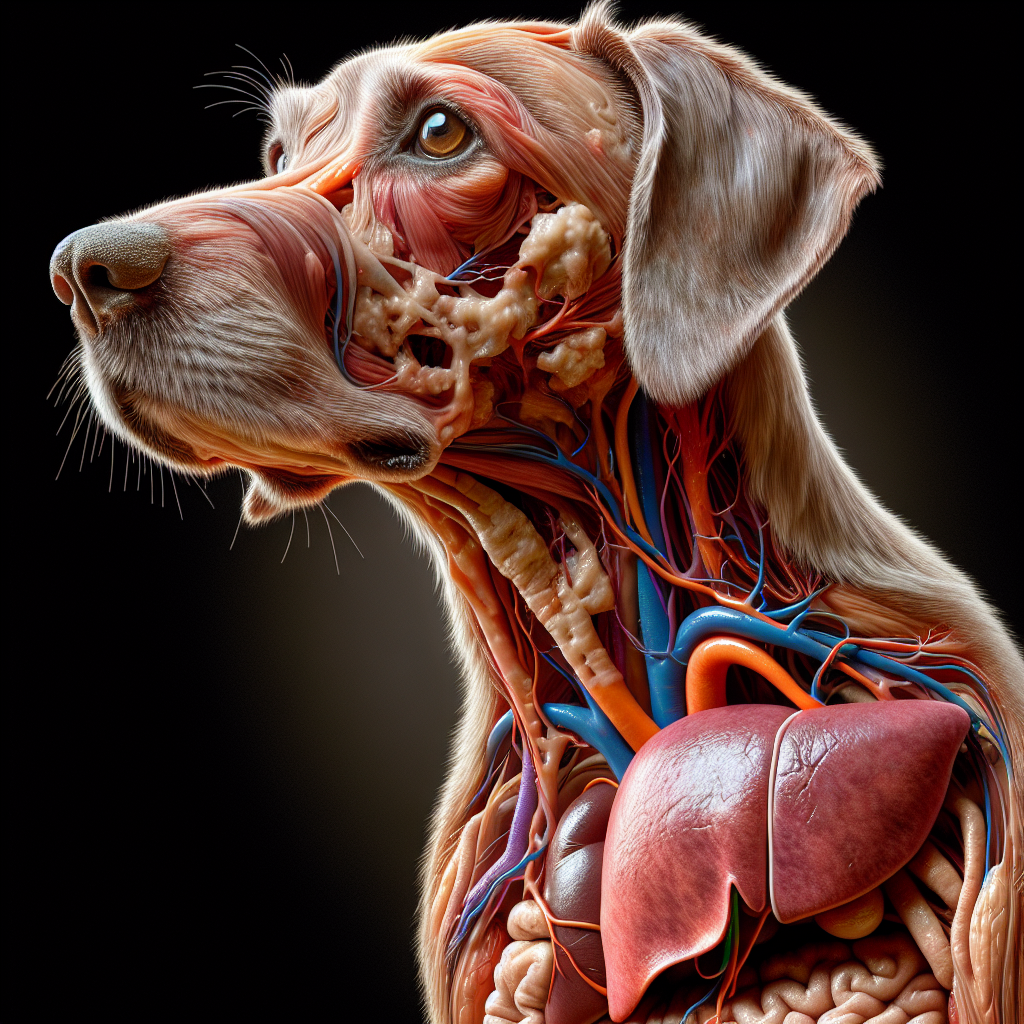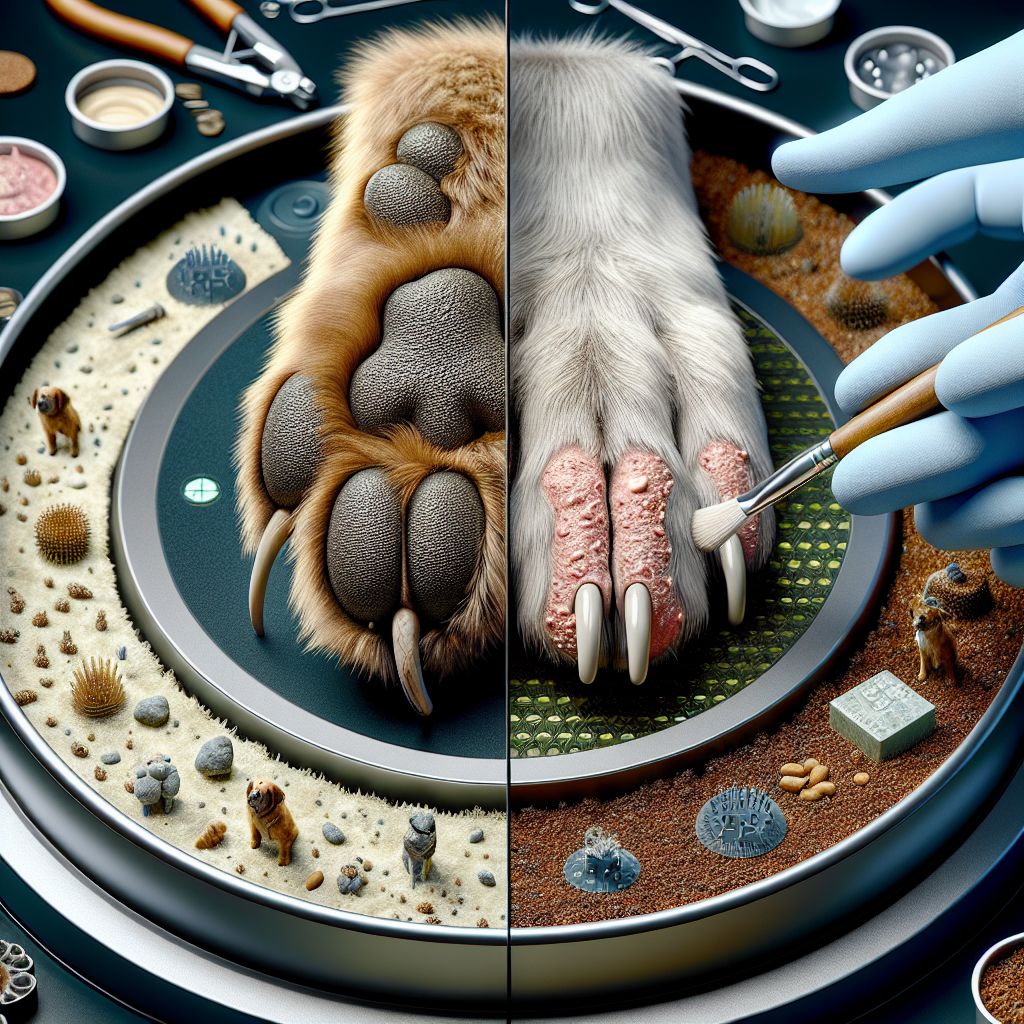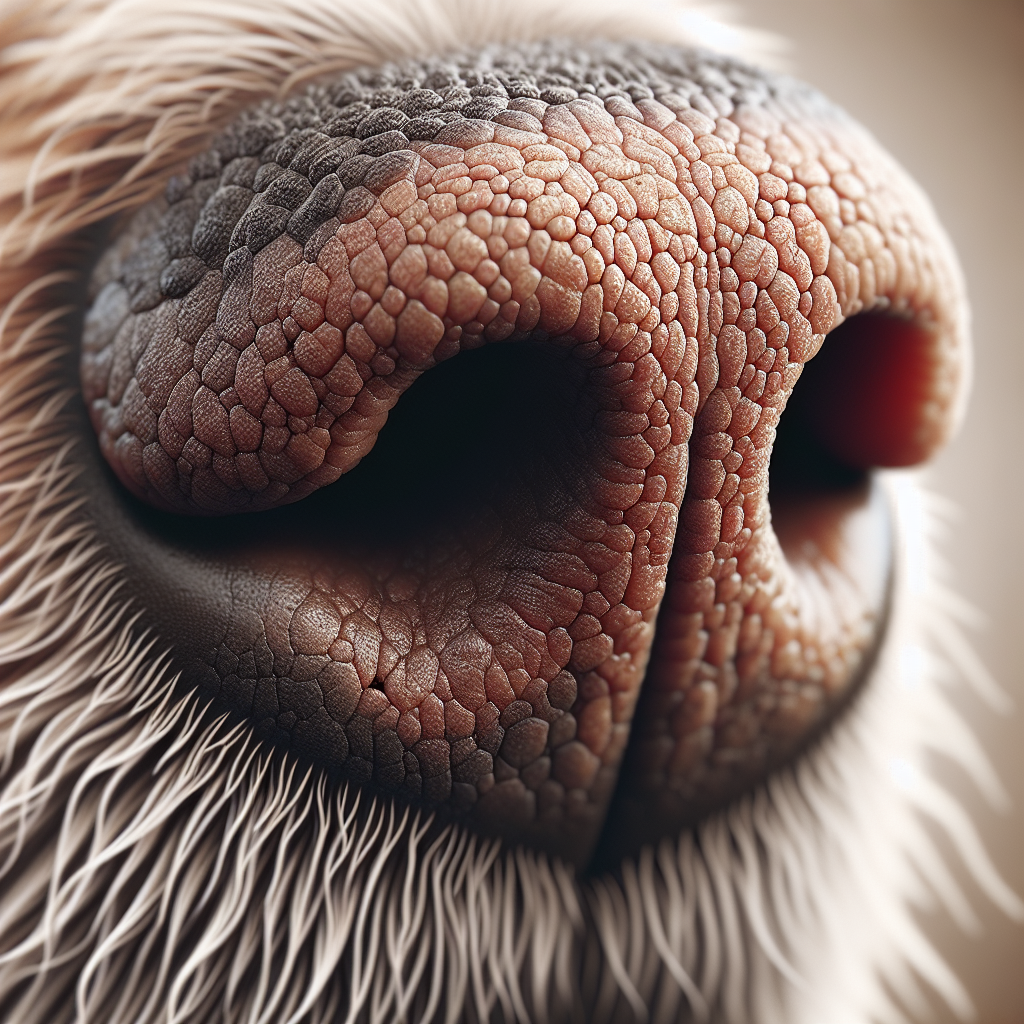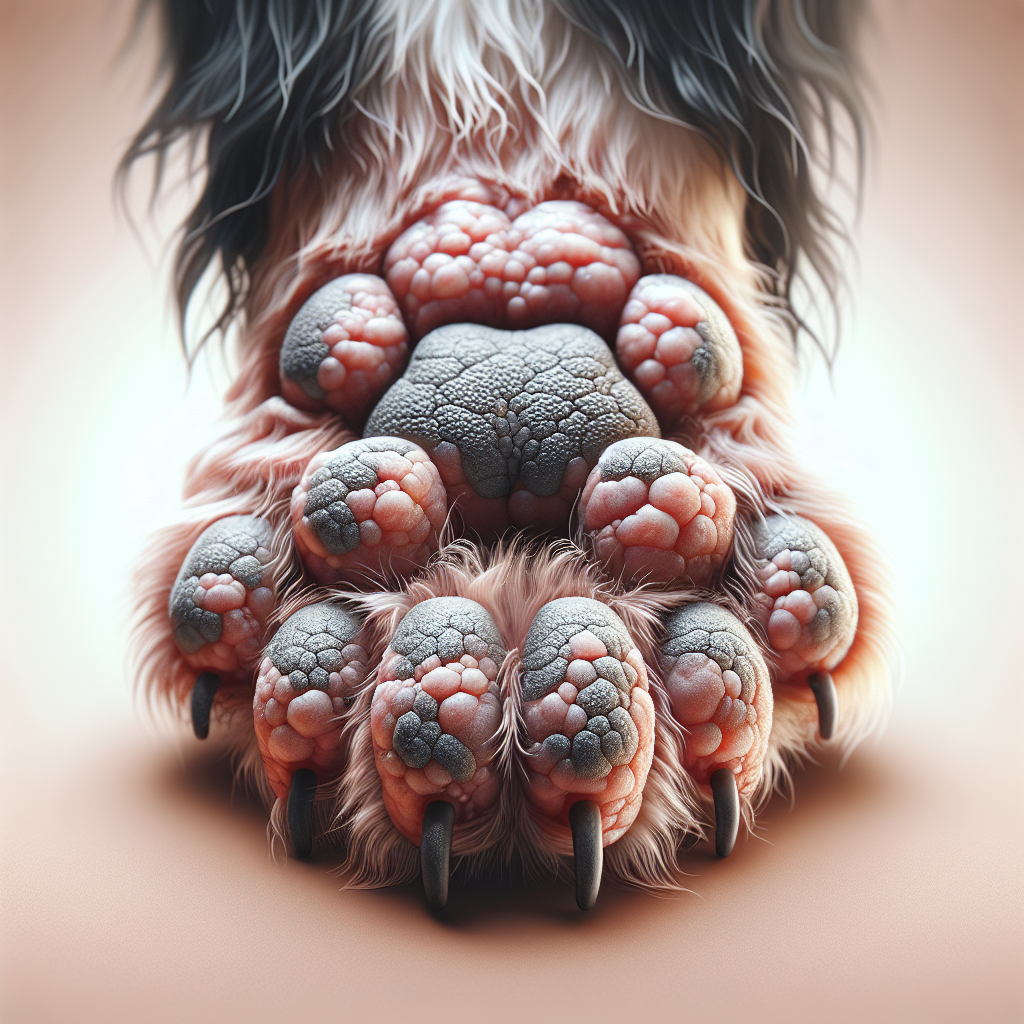Understanding Liver Disease in Dogs
Liver disease in dogs is a common and serious health condition that can affect dogs of all ages. It refers to a range of conditions that cause the liver to malfunction or stop working properly, leading to inflammation and damage (PetMD). The liver, being the second-largest organ in a dog’s body, performs vital functions such as processing blood from the stomach and intestines, breaking down fats, carbohydrates, and proteins, and acting as a filter for medications and toxins.
Causes of Liver Disease
Liver disease in dogs can have various causes, including aging, genetics, infections, trauma, certain diseases, and medications. Some common factors that can contribute to liver disease in dogs include:
- Bacterial and viral infections
- Toxins and medications
- Congenital defects
- Cancer
- Metabolic disorders
It is important to note that liver disease can either be a primary problem with the liver itself or secondary to other medical conditions. Identifying the underlying cause of liver disease is crucial in determining the most effective treatment plan for your furry friend.
Importance of Early Diagnosis
Early diagnosis of liver disease in dogs is vital for successful treatment and management. Routine blood work and physical examinations can help in the early detection of liver issues, allowing prompt intervention (GoodRx). Veterinarians may also utilize additional diagnostic tools such as X-rays, ultrasounds, and biopsies to accurately diagnose the specific condition.
Timely diagnosis enables veterinarians to develop tailored treatment plans that address the specific underlying cause of liver disease in your dog. Prompt intervention can help manage symptoms, slow down the progression of the disease, and improve your dog’s quality of life.
If you notice any signs or symptoms of liver disease in your dog, such as decreased appetite, weight loss, vomiting, jaundice, or changes in behavior, it is essential to seek veterinary care as soon as possible. Early detection and intervention can make a significant difference in the prognosis and overall well-being of your furry friend.
In the following sections, we will explore the symptoms, diagnostic tests, treatment options, preventive measures, and specific liver conditions in dogs. Understanding these aspects will provide you with valuable insights into managing and protecting your dog’s liver health.
Symptoms and Diagnosis
Liver disease in puppies can present a range of symptoms, which, if left untreated, can progress to serious complications. Early recognition of these symptoms is vital for prompt diagnosis and treatment. Diagnostic tests play a crucial role in confirming liver disease and determining the underlying cause.
Recognizing Symptoms
Symptoms of liver disease in puppies can be easily missed, as they overlap with those of other health issues. However, being aware of these signs can help you identify potential liver problems in your furry friend. Some common symptoms of liver disease in dogs include:
- Jaundice: One of the most noticeable signs, jaundice causes a yellowish coloring in a dog’s eyes, gums, skin, and ears. It occurs when bilirubin builds up in the blood due to the liver not functioning normally.
- Lethargy: Puppies with liver disease may show a lack of energy and increased sleepiness.
- Loss of appetite: A decrease in appetite or refusal to eat can be an indication of liver issues.
- Vomiting and diarrhea: Gastrointestinal symptoms like vomiting and diarrhea may occur in dogs with liver disease.
- Neurological problems: As the disease progresses, puppies may exhibit disorientation, aimless wandering, lack of coordination, and other neurological abnormalities (ASPCA Pet Insurance).
These symptoms may vary depending on the severity and underlying cause of the liver disease. If you notice any of these signs in your puppy, it is important to consult a veterinarian for further evaluation and diagnosis.
Diagnostic Tests in Dogs
Once symptoms are recognized, your veterinarian will perform diagnostic tests to confirm liver disease and determine the appropriate course of treatment. These tests may include:
- Blood tests: Routine blood work can provide valuable information about liver function and detect abnormalities. Liver enzyme levels, bile acids, bilirubin levels, and other blood markers help assess liver health.
- Imaging tests: X-rays, ultrasounds, and in some cases, CT scans or MRIs may be utilized to evaluate the liver’s structure, detect abnormalities, and guide further diagnosis.
- Biopsy: In certain cases, a liver biopsy may be necessary to obtain a tissue sample for examination under a microscope. This helps in determining the specific cause and severity of the liver disease.
These diagnostic tests, combined with a thorough physical examination and medical history review, enable veterinarians to accurately diagnose liver disease in puppies and provide appropriate treatment plans. Early detection and intervention increase the chances of successful management and improve outcomes for your furry friend.
In the next section, we will explore the various treatment options available for liver disease in puppies, which can help slow down the progression of the disease and improve your puppy’s quality of life.
Treatment Options
When it comes to addressing liver disease in puppies, treatment options may vary depending on the specific condition and severity of the disease. Tailored treatment plans are essential to effectively manage liver disease and improve the overall health of your furry friend. In addition to tailored treatment plans, supportive care and medications play a crucial role in the management of liver disease in dogs.
Tailored Treatment Plans
For chronic liver disease in puppies, treatment should be tailored to the specific findings from liver biopsy whenever possible. This individualized approach allows veterinarians to address the underlying cause of the liver disease and develop a targeted treatment plan (Veterinary Practice). Depending on the diagnosis, specific treatments may include:
- Copper chelation: Copper metabolism disorders can contribute to liver disease in certain breeds. Chelation therapy may be prescribed to help remove excess copper from the body.
- Anti-inflammatories: Inflammation can further damage the liver. Anti-inflammatory medications may be used to reduce inflammation and support liver function.
- Immunosuppression: In immune-mediated hepatopathies, immunosuppressive therapy with medications like prednisone or prednisolone can be recommended to manage the condition (dvm360).
- Ascites management: Ascites, the accumulation of fluid in the abdomen, can occur in cases of portal hypertension. Medications may be prescribed to relieve ascites and improve comfort.
Each treatment plan is tailored to the specific needs of the puppy, taking into account factors such as age, overall health, and the stage of liver disease. Regular monitoring and follow-up with your veterinarian are crucial to assess the effectiveness of the treatment plan and make any necessary adjustments.
Supportive Care and Medications
Supportive care plays a vital role in managing liver disease in puppies. This includes providing a balanced and appropriate diet for dogs with liver disease. Your veterinarian may recommend a special diet that is low in protein and restricted in certain nutrients to reduce the workload on the liver and support its function.
In addition to dietary adjustments, medications may be prescribed to address specific symptoms and complications associated with liver disease. Antibiotics are commonly used to treat suppurative hepatitis, cholangiohepatitis, and hepatic encephalopathy, as well as to prevent septicemia in dogs with chronic liver disease. However, certain antibiotics like chloramphenicol and tetracycline should be avoided due to potential hepatotoxicity.
Corticosteroid therapy, such as prednisone or prednisolone, may be recommended for certain liver conditions in puppies, including chronic active hepatitis and immune-mediated hepatopathies. These medications help to reduce inflammation and manage the immune response. Azathioprine, an immunosuppressive agent, can also be used in combination with corticosteroid therapy when indicated (dvm360).
For its potential antioxidant properties, milk thistle (silymarin) is often used in managing liver disease in dogs. It has shown protective effects against clinical and pathologic changes associated with chronic liver disease. The dosage typically varies based on the individual dog’s needs and is administered every 12 to 24 hours.
It’s important to work closely with your veterinarian to determine the most suitable treatment options for your puppy’s specific liver disease. Regular veterinary check-ups and open communication will ensure that your furry friend receives the necessary treatment and supportive care to manage liver disease effectively.
Preventive Measures
Taking preventive measures is crucial when it comes to liver disease in puppies. By implementing early detection strategies and following preventive measures, dog owners can reduce the risk of liver disease and promote their furry friend’s overall well-being.
Early Detection Strategies
Early detection plays a vital role in managing liver disease in puppies. Being aware of the early signs and symptoms can prompt timely veterinary intervention, leading to better outcomes for your pet. Some common signs of liver disease in dogs include:
- Loss of appetite
- Weight loss
- Vomiting or diarrhea
- Increased thirst and urination
- Yellowing of the eyes, gums, or skin (jaundice)
- Lethargy or weakness
- Abdominal pain or swelling
If you notice any of these symptoms in your puppy, it is important to consult a veterinarian promptly. Regular veterinary check-ups and routine blood work can help in the early detection of liver issues. Additionally, it is important to keep your veterinarian informed about any medications or supplements your puppy may be taking, as some medications can potentially harm the liver.
Preventing Liver Disease
Preventing liver disease in puppies involves a combination of lifestyle choices and awareness. Here are some preventive measures that can help safeguard your puppy’s liver health:
-
Regular Veterinary Check-ups: Schedule regular check-ups with your veterinarian to monitor your puppy’s overall health and detect any potential liver issues early on.
-
Vaccinations: Ensure your puppy is up-to-date on all necessary vaccinations, including those against infectious diseases that can affect the liver.
-
Avoiding Toxins: Be cautious about your puppy’s environment and prevent exposure to toxic substances such as poisonous plants, chemicals, and insects. These can potentially damage the liver.
-
Dietary Considerations: Provide a balanced and nutritious diet that is appropriate for your puppy’s age and breed. Consult with your veterinarian about any specific dietary recommendations for puppies with a higher risk of liver disease. For dogs with existing liver disease, specialized diets may be necessary. Learn more about diet for dogs with liver disease.
-
Medication Awareness: Inform your veterinarian about any medications or supplements your puppy is taking, as some medications can have adverse effects on the liver. Always follow the prescribed dosage and avoid self-medication.
-
Exercise and Weight Management: Regular exercise and weight management are essential for maintaining your puppy’s overall health. Obesity can contribute to liver disease, so it’s important to keep your puppy at a healthy weight.
By implementing these preventive measures, you can significantly reduce the risk of liver disease in puppies. Remember, early detection and proactive care are key to ensuring your furry friend’s liver health. For more information about liver disease in older dogs, check out our article on liver disease in older dogs.
Specific Liver Conditions
Liver disease in dogs encompasses various specific conditions that can affect the liver’s normal function. Two common liver conditions in dogs are liver shunts and liver masses, including liver cancer.
Liver Shunts in Dogs
Liver shunts, both congenital and acquired, are common liver disorders in dogs. Congenital portosystemic shunts are often found in young dogs, while acquired shunts are more common in older dogs due to issues like high blood pressure or cirrhosis. In liver shunts, abnormal blood vessels allow blood to bypass the liver or go through it without being properly filtered for toxins. Certain breeds like Australian Cattle Dogs, Golden Retrievers, and Yorkshire Terriers have a higher likelihood of being born with a liver shunt.
The abnormal blood flow caused by liver shunts can lead to a range of symptoms, including stunted growth, poor weight gain, vomiting, diarrhea, and neurological issues. Treatment options for liver shunts depend on the severity of the condition and may involve dietary management, medication, or surgical intervention. In some cases, surgery to redirect the blood flow or close off the abnormal blood vessels may be necessary.
Liver Masses and Cancer
Dogs are prone to several types of liver masses, including liver cysts and liver tumors. Liver cysts are fluid-filled sacs that can be either benign or, in some cases, cause symptoms of liver disease (PetMD). Large or growing cysts may require surgical removal to alleviate liver issues in dogs.
Liver cancer in dogs can occur in two forms: primary tumors, which originate in the liver, and metastatic (secondary) tumors, which spread from another area in the body. Primary liver tumors can be either benign or malignant, while metastatic liver tumors are typically malignant. Treatment for liver cancer in dogs may involve surgery, chemotherapy, radiation therapy, or a combination of these treatments, depending on the type, location, and number of masses present (PetMD).
Early detection of liver shunts, liver masses, and liver cancer is crucial for a successful outcome. Regular veterinary check-ups, including blood tests and imaging, can help identify these conditions at an early stage. If you suspect any liver-related issues in your dog, it’s important to consult with a veterinarian for a comprehensive evaluation and appropriate treatment options.
To learn more about liver disease in dogs, including liver failure and dietary considerations, refer to our articles on canine liver failure and diet for dogs with liver disease.
Breed Susceptibility and Management
Certain dog breeds are more prone to developing liver disease. Understanding the breeds that are predisposed to liver disease can help dog owners take proactive measures to manage their pet’s health. Let’s explore some of the breeds that are more susceptible to liver disease and the management strategies that can be implemented.
Breeds Prone to Liver Disease
-
Yorkshire Terriers: Yorkshire Terriers are one of the breeds prone to copper storage disease, a condition where copper builds up in the liver and damages the organ. This breed is more susceptible to copper storage disease than others (ASPCA Pet Insurance).
-
Schnauzers: Schnauzers are also predisposed to copper storage disease. Monitoring their copper levels and implementing appropriate dietary management can help prevent liver damage in these dogs.
-
Golden Retrievers: Golden Retrievers have an increased risk of developing liver disease, including copper storage disease. Regular monitoring of liver function and copper levels is essential for these dogs.
-
Labrador Retrievers: Labrador Retrievers are more prone to chronic hepatitis compared to the average dog. Regular liver function monitoring is important for early detection and intervention in these dogs (PetSci).
-
Poodles: Poodles are another breed at risk for copper storage disease. It is crucial to manage their copper levels through appropriate dietary measures to prevent liver damage (ASPCA Pet Insurance).
-
German Shepherds: German Shepherds can be predisposed to copper storage disease, emphasizing the need for regular monitoring and appropriate dietary management to maintain liver health.
Management Strategies for Predisposed Breeds
For breeds prone to liver disease, it is essential to implement effective management strategies to maintain their liver health:
-
Regular Veterinary Check-ups: Schedule regular check-ups with your veterinarian to monitor liver function and detect any signs of liver disease at an early stage. Early detection can significantly improve treatment outcomes.
-
Dietary Management: Work closely with your veterinarian to develop a tailored diet plan for your dog with liver disease. This may involve reducing copper intake, providing a balanced and easily digestible diet, and considering specialized liver support diets (diet for dogs with liver disease).
-
Medications and Supplements: In some cases, medications and supplements may be prescribed to support liver function and minimize further damage. Follow your veterinarian’s recommendations regarding medication administration and dosage.
-
Lifestyle Modifications: Ensure your dog leads a healthy lifestyle by providing regular exercise, maintaining a stress-free environment, and minimizing exposure to toxins and chemicals that can be harmful to the liver.
-
Regular Monitoring: Regularly monitor your dog’s liver function through blood tests and imaging studies as recommended by your veterinarian. This helps track the progression of the disease and assess the effectiveness of the management strategies.
By being aware of the breeds more susceptible to liver disease and implementing appropriate management strategies, dog owners can help safeguard the health of their furry companions. If you suspect your dog may be at risk or exhibiting symptoms of liver disease, consult with your veterinarian for a thorough examination and appropriate guidance. For more information on liver-related conditions, you can also refer to our articles on canine liver failure and liver shunt in dogs.











